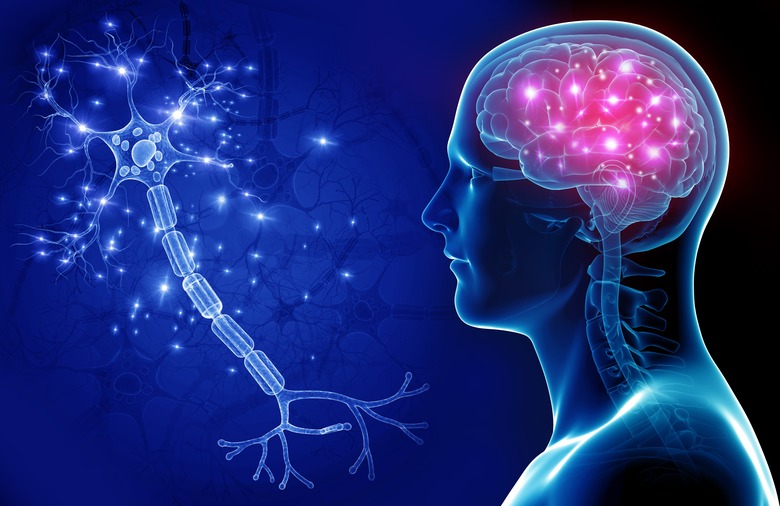Could Adult Brain Cell Growth Change The Way We Think About Aging?
When it comes to addressing public health in the United States, aging-related issues should be at the top of the list. The International Federation on Ageing estimates that people age 65+ will make up 20 percent of the population by 2050. In addition to common aging-related disorders, like arthritis, older adults also face a higher risk of brain disorders, including Alzheimer's disease and depression.
But what does aging actually mean for your brain? New research into how adult brain cells grow calls into question some scientists' long-held beliefs about how our brains change during aging – and could hold the key to combating cognitive decline later in life.
What Is Neurogenesis?
What Is Neurogenesis?
Neurogenesis is the process your body uses to develop new neurons, one of two major types of brain cells. Neurons are the cells you probably think of as "nerves" – they're the cells that send small electrical communications to each other and carry out thinking, memory, muscle movement and more. The other major group of cells in your brain are glia, which support the neurons (and are formed via gliogenesis).
Not surprisingly, neurogenesis starts during fetal development. Some of the earliest progenitor cells form the neural tube that eventually develops into your nervous system. And, through billions of cell divisions and maturations, they eventually form the nervous system you're born with, and then continue to develop from there.
What Is Adult Neurogenesis?
What Is Adult Neurogenesis?
While the bulk of your brain development happens early in life, your brain keeps producing new nerve cells via neurogenesis. Because this happens in adulthood, it's called adult neurogenesis.
Adult neurogenesis has the same general idea as earlier neurogenesis in that it involves a progenitor or immature cell developing into a neuron. However, there are a few differences. Adult neurogenesis only occurs in a couple regions of the brain – the olfactory bulb, which processes scents, and the hippocampus, which is responsible for learning and memory – and it's more limited. While embryonic neurogenesis can produce any type of neuron, adult neurogenesis can produce only a few.
What Is the Role of Adult Neurogenesis?
What Is the Role of Adult Neurogenesis?
Research into adult neurogenesis is still relatively new; the field only really took off in the late '90s, explains Lafayette College. Scientists are still unraveling exactly what adult neurogenesis is for. But the research so far indicates that adult neurogenesis in the hippocampus is involved in storing memories and regulating mood.
Disruptions in adult neurogenesis are linked to mood disorders (think depression or bipolar disorder) and neurological diseases. Treatments for psychiatric disorders, like antidepressant medications, seem to work, at least in part, by restoring neurogenesis back to normal levels, reports a review published in "Brain Research" in 2017.
Where Does Aging Come In?
Where Does Aging Come In?
Until recently, researchers speculated that adult neurogenesis might taper off as you age. On the surface, it makes sense. Common scientific study subjects, like mice and rats, do experience a decrease in adult neurogenesis as they get older. And the part of the hippocampus responsible for forming new memories shrinks as we age, which could reflect lower rates of neurogenesis.
However, new research published in "Cell Press" in 2018 shows this is not the case. Researchers wanted to look at neurogenesis in humans over time, so they autopsied the brains of people aged 14 to 79 who had died suddenly, measuring signs of adult neurogenesis in each brain.
What they found was surprising: The older adults showed just as many signs of neurogenesis as the younger ones. For example, just as many immature neurons were developing across age groups. They did find differences in new blood vessel development, though, indicating that blood supply might explain cognitive changes that can occur with age.
What does it all mean to you? With a field of research so new, it could still take years or decades to fully understand what happens in the brain as we age. But each new discovery gives scientists a new path to explore – one that could eventually help us fight cognitive changes that occur with age, and boost quality of life for all.
Cite This Article
MLA
Tremblay, Sylvie. "Could Adult Brain Cell Growth Change The Way We Think About Aging?" sciencing.com, https://www.sciencing.com/could-adult-brain-cell-growth-change-the-way-we-think-about-aging-13711805/. 26 June 2018.
APA
Tremblay, Sylvie. (2018, June 26). Could Adult Brain Cell Growth Change The Way We Think About Aging?. sciencing.com. Retrieved from https://www.sciencing.com/could-adult-brain-cell-growth-change-the-way-we-think-about-aging-13711805/
Chicago
Tremblay, Sylvie. Could Adult Brain Cell Growth Change The Way We Think About Aging? last modified March 24, 2022. https://www.sciencing.com/could-adult-brain-cell-growth-change-the-way-we-think-about-aging-13711805/
